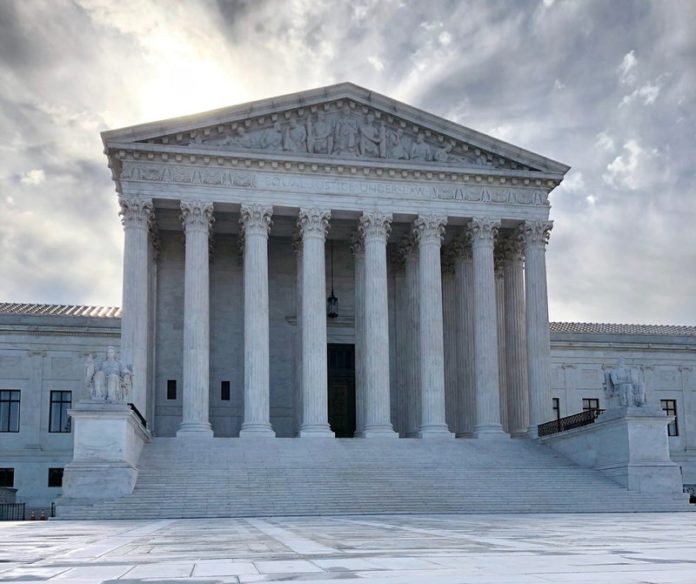
The Supreme Court said Friday it will review a 2016 Arizona law that bars anyone but a family member or caregiver from returning another person’s early ballot. The law itself, however, remains in effect through the presidential election and until the justices rule.
The court will begin hearing arguments again next week after a summer break. The Arizona case was one of four cases the court, now eight justices because of the death of Justice Ruth Bader Ginsburg, agreed to hear in its new term that begins Monday. As is usual, the justices did not comment in taking the cases. Because of the coronavirus pandemic, the justices will not be returning to the courtroom to hear arguments but instead will continue hearing arguments by telephone. The court has been closed to the public since March.
In the Arizona case, a federal appeals court ruled in January that Arizona’s law banning so-called “ballot harvesting” violates the Voting Rights Act and the Constitution, but the court put its ruling on hold while the Supreme Court was asked to take the case.
The appeals court also found that Arizona’s policy of discarding ballots if a voter went to the wrong precinct violates the law. The court said both have a discriminatory impact on minority voters in violation of the Voting Rights Act.
The high court in recent years has weakened the Voting Rights Act, throwing out the most powerful part of the landmark law in 2013. It could use the current case to go even further.
The case began after Republicans in Arizona passed the law making it a felony to return someone else’s ballot to election officials in most cases and Democrats sued.
Both parties had used ballot collection in Arizona to boost turnout during elections by going door to door and asking voters if they have completed their mail-in ballot. Democrats used the method aggressively in minority communities and argued their success prompted the new GOP-sponsored law. Republicans argued the law was aimed at preventing election fraud.
Arizona Attorney General Mark Brnovich, a Republican, said in a statement he is pleased the court will hear the case.
The justices also said Friday they will review a longstanding effort by the Federal Communications Commission to relax restrictions in individual media markets on ownership of different forms of media — TV stations and newspapers — over fears that it would leave fewer outlets controlled by minorities.
Republished with the permission of the Associated Press.












